
ICAS Bulletin (online ISSN 2836-3418, print ISSN 2836-340X) is published every other week throughout the year at 1919 M St NW, Suite 310, Washington, DC 20036.
The online version of ICAS Bulletin can be found at chinaus-icas.org/bulletins/.
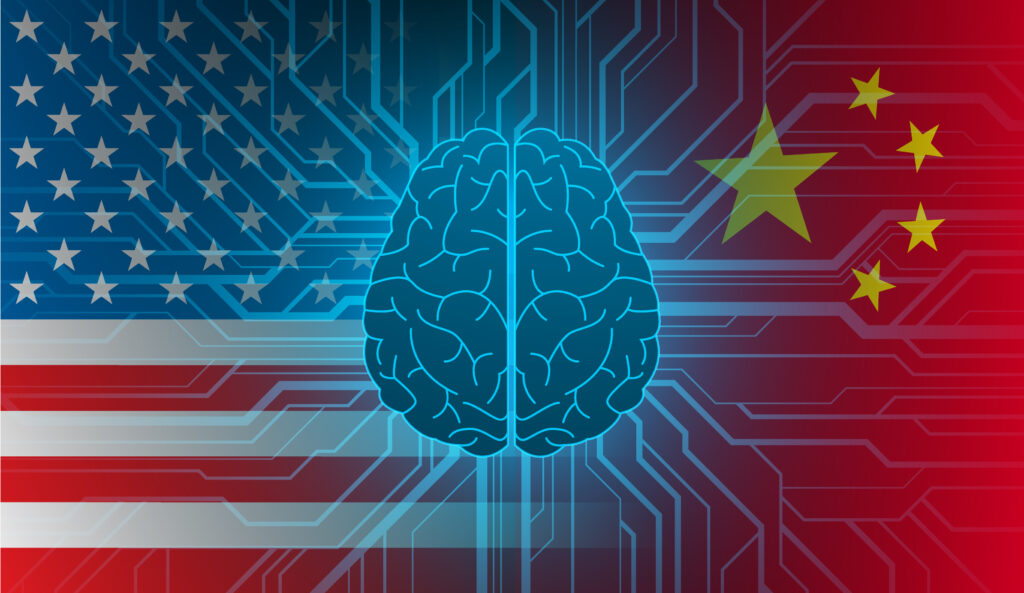
– Chinese-linked hacking group Salt Typhoon breached U.S. broadband networks, accessing sensitive wiretapping systems used for criminal and national security investigations. This intrusion poses a critical national security risk, affecting major telecom companies like Verizon and AT&T, and is under active investigation.
– On October 2, the CIA launched a recruitment campaign targeting informants in China, Iran, and North Korea, expanding a successful effort that already enlists Russians. According to sources, the agency posts instructions on social media platforms and the Dark Web to help potential sources contact them securely amidst increased global surveillance.
– In early October, Taiwanese and U.S. drone companies met in Taipei, seeking to create a China-free supply chain amidst growing threats from Beijing. U.S. officials joined the forum highlighting defense cooperation as drones become crucial in potential future conflicts involving Taiwan.
– In a related campaign, Chinese hackers behind the “Salt Typhoon” group also penetrated U.S. broadband providers, aiming to establish access to core internet infrastructure. The attack is believed to support intelligence collection efforts, with experts warning of a larger cyber threat targeting critical U.S. infrastructure.
– The U.S. expressed deep concern on September 25 over reports of a secret Russian war drone project being conducted in China involving a Chinese company providing lethal aid to a sanctioned Russian firm. While there is no evidence of Chinese government involvement, the U.S. warned China to prevent its companies from aiding Russia’s war effort in Ukraine.
Associated News References:
“U.S. Wiretap Systems Targeted in China-Linked Hack,” The Wall Street Journal, October 5
“CIA expands online recruitment of informants to China, Iran, North Korea,” Reuters, October 2
“US, Taiwan look to boost drone collaboration,” Voice of America, September 27
“China-Linked Hackers Breach U.S. Internet Providers in New ‘Salt Typhoon’ Cyberattack,” The Wall Street Journal, September 26
“US concerned by report on Russia secret war drones project in China, White House says,” Reuters, September 25

– On October 8, a senior U.S. official accused Chinese lithium producers of flooding the global market, causing a significant price drop aimed at eliminating competition.
– Chinese biotech firms WuXi AppTec and WuXi Biologics are exploring the sale of some operations after U.S. lawmakers passed a bill targeting these companies out of U.S. national security concerns.
– On October 4, the U.S. Department of Homeland Security banned imports from two Chinese companies accusing them of using forced labor from Xinjiang. The companies—Baowu Group’s steel subsidiary and a maker of artificial sweetener—were added to the Uyghur Forced Labor Prevention Act’s entity list.
– A report from Strategy Risks in early October highlighted the U.S. companies that are most exposed to risks in China, including Ford, Apple, Tesla, and Coca-Cola. The report warns that rising U.S.-China tensions increase economic, supply chain, and reputational risks, urging more transparency on these vulnerabilities.
– Chinese stocks surged, but U.S. traders largely ignored the rise, focusing on domestic issues. Despite a 26% jump in Chinese markets, the S&P 500 showed minimal movement, highlighting China’s limited impact on the U.S. economy.
Associated News References:
“China is oversupplying lithium to eliminate rivals, US official says,” Reuters, October 8
“China’s WuXi explores sale of pharma operations as US restrictions loom, FT reports,” Reuters, October 3
“US bans new types of goods from China over allegations of forced labor,” AP News, October 2
“US companies with high China exposure face more risks,” Fox Business, September 30
“China’s Stock-Market Revival Fails to Register With Fed-Obsessed US Traders,” Bloomberg, September 30

– One day after the U.S. Coast Guard spotted four Chinese and Russian vessels in the Bering Sea, China’s Coast Guard claimed its first patrol in the Arctic Ocean, conducted jointly with Russia, which U.S. military personnel say marks an increased interest in the Arctic by China.
– Cambodia announced on October 1 that the U.S. Navy is welcome to visit its Ream Naval Base, amid renewed U.S. concerns that the facility could become a Chinese outpost. Cambodian officials reiterated that the base is for national defense and open to all nations for humanitarian, disaster recovery, or joint exercises.
– The Biden administration approved $567 million in defense support for Taiwan, including military education and training, as part of ongoing U.S. aid.
– At the United Nations General Assembly, the Biden Administration showed continued concerns about deepening ties between Russia, China, North Korea, and Iran, as these nations collaborate militarily and economically. U.S. officials are urging action to stop military flows, while maintaining diplomatic efforts with China to manage tensions.
– A Chinese nuclear-powered attack submarine sank earlier this year, according to new reports from a U.S. defense official, raising questions about China’s naval production and safety standards. China has not commented on this incident, which occurred between May and June.
– The Pentagon praised China for notifying the U.S. ahead of its intercontinental ballistic missile test into the Pacific, marking improved military communication between the two nations. The move is being seen as a confidence-building measure, as the U.S. pushes for more regular notifications to prevent miscalculations.
– The U.S. and Philippines have agreed to keep a U.S. mid-range missile system in the northern Philippines despite China’s concerns about regional destabilization. Philippine officials rejected China’s objections, calling them interference in their internal affairs, as tensions rise over military deployments in the region.
Associated News References:
“China’s Coast Guard claims to have entered the Arctic Ocean for the first time as it ramps up security ties with Russia,” CNN, October 3
“Cambodia says it would welcome US Navy at port expanded with China’s help,” Reuters, October 1
“Biden approves $567 million in defense support for Taiwan,” DW, September 30
“U.S. and Allies Sound Alarm Over Their Adversaries’ Military Ties,” The New York Times, September 30
“Chinese nuclear-powered submarine sank this year, US official says,” Reuters, September 27
“US Hails Early Notice of China ICBM Test to Avoid Miscalculation,” Bloomberg, September 26
“US missile system will remain in the Philippines despite China’s alarm,” AP News, September 25
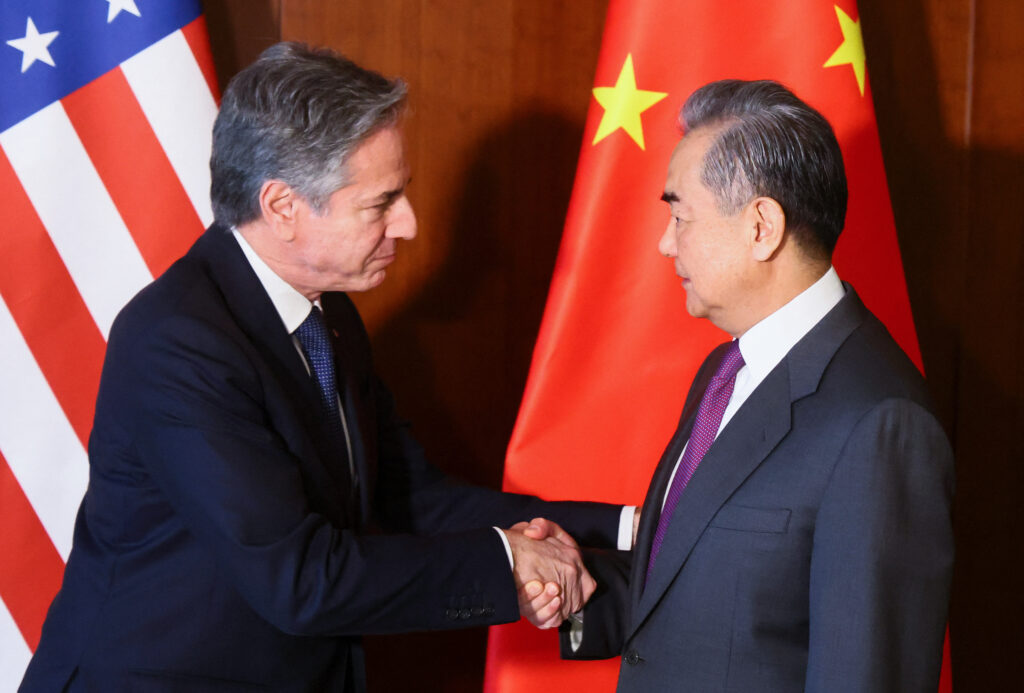
– On October 1, Chinese and U.S. health officials agreed to enhance cooperation on global health issues, including cancer prevention, during rare ministerial-level talks in Washington. Both sides emphasized the importance of medical collaboration, marking the first high-level health talks since 2017 amidst broader efforts to stabilize U.S.-China relations.
– Chinese Commerce Minister Wang Wentao and his U.S. counterpart will discuss trade and economic ties in an upcoming call, focusing on tariffs, investment restrictions, and electric vehicle policies. This follows new U.S. tariffs on Chinese goods, including EVs and batteries, which China has criticized and vowed to retaliate against.
– The U.S. dropped its push for the United Nations(UN) Security Council to transition a security mission in Haiti into a formal UN peacekeeping operation, a move potentially aimed at appeasing Russia and China.
– On September 27, U.S. Secretary of State Antony Blinken met with Chinese Foreign Minister Wang Yi in which Blinken expressed concerns over China’s support for Russia’s defense industry, noting Beijing’s actions contradict its peace stance on Ukraine. The discussions also covered tensions in the South China Sea, military communication, and the risks posed by artificial intelligence.
– China is quietly seeking support at the United Nations for a Ukraine peace deal favorable to Russia, rallying countries in Latin America, Asia, and Africa. The U.S. opposes the plan, insisting that any peace process must fully support Ukraine’s sovereignty.
Associated News References:
“China, US health officials agree on more cooperation following rare talks,” Reuters, October 1
“China, US to hold talks on economic and trade issues, Xinhua reports,” Reuters, October 1
“US changes tack on Haiti peacekeeping push amid China, Russia opposition,” Reuters, September 29
“After China meeting, Blinken says Beijing’s talk of Ukraine peace ‘doesn’t add up’,” Reuters, September 27
“How China plans to get more backers for its Ukraine peace plan at the UN,” Politico, September 25
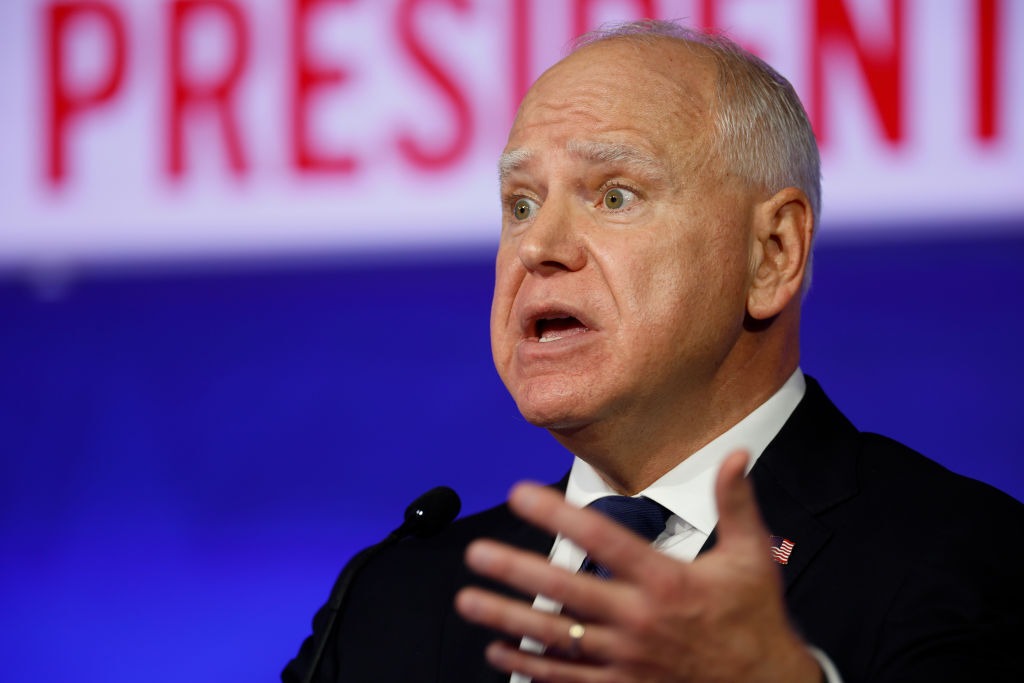
– U.S. Vice Presidential candidate Gov. Tim Walz admitted to exaggerating parts of his biography, including claims of being in Hong Kong during the Tiananmen Square protests and his military service. Facing scrutiny ahead of the U.S. election, Walz acknowledged his misstatements, saying he “needs to be clearer.”
– Zoologist Dr. Peter Daszak, head of the U.S.-based EcoHealth Alliance, faced death threats and harassment over his collaboration with Chinese scientists on virus research, particularly with the Wuhan Institute of Virology. His work became controversial amid unproven lab leak theories about the origins of COVID-19.
– On September 30, Vietnam granted amnesty to 20 foreign prisoners, including nine Chinese and two U.S. citizens, as part of a broader National Day amnesty that freed over 3,760 prisoners.
– A new public survey found that 68% of Chinese Americans experience discrimination regularly, with many attributing it to the U.S.-China relations. The study also highlighted mental health struggles, with 43% reporting feelings of depression and many expressing concern over political rhetoric and its impact on their treatment in the U.S.
– China’s First Lady Peng Liyuan met with visiting American students in Beijing, highlighting efforts to improve U.S.-China relations. Peng encouraged the students to share their experiences and foster friendship between the two nations, as part of broader initiatives, including a pledge to bring 50,000 American students to China over the next five years.
Associated News References:
“An Imprecise Biography Catches Up With Tim Walz,” The Wall Street Journal, October 2
“Walz misleadingly claims to have been in Hong Kong during period tied to Tiananmen Square massacre,” AP News, October 1
“US scientist and family on ‘kill list’ after working with Chinese scientists,” The Telegraph, September 30
“Vietnam offers amnesty to 20 foreign prisoners, including Chinese, U.S. citizens,” Reuters, September 29
“Chinese Americans face discrimination amid U.S-China tensions, survey shows,” The Washington Post, September 26
“China’s First Lady Meets US Students in Bid to Improve Ties,” Bloomberg, September 25
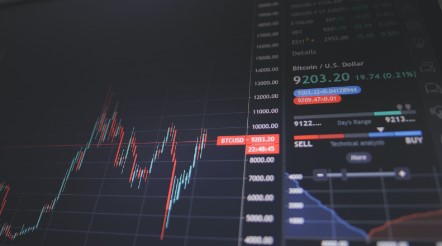
“Indian companies move in as US cuts China out of its solar industry,” Financial Times, October 6
“Macron Says Over-Regulation to Leave Europe Behind US, China,” Bloomberg, October 2
“Alleged Chinese Spy Was Tracking U.S. Arms Shipments to Israel,” The Wall Street Journal, October 1
“US lawmakers ask Mexican president-elect to address Chinese vehicle concerns,” Reuters, October 1
“U.S. Raises New Concerns Over Chinese Lending Practices,” The New York Times, October 1
“Former Chinese finance minister urges crypto study after US Bitcoin ETF shift,” Cointelegraph, September 29
“China urges US to stop ‘unreasonable suppression’ of its firms in latest auto row,“ Reuters, September 25
“Stiglitz Says US-China Tensions Are Upending Global Trade Flows,” Bloomberg, September 25
“Oil declines as investors weigh whether new China stimulus will boost demand,” Reuters, September 25
Navigating the Arctic Shifts:
The Evolving Impacts of Economic Sanctions on Russia
By Nong Hong
October 8, 2024
Executive Summary
Following Russia’s annexation of Crimea in 2014 and crisis starting in Ukraine in 2022, the United States, European Union, and other Western imposed stringent sanctions on key sectors of Russia’s economy, particularly the energy sector. This report analyzes the effects of these sanctions on Russia’s economy, geopolitics, and security, with a focus on their impact on Russia’s Arctic liquefied natural gas (LNG) projects, such as Yamal LNG and Arctic LNG 2, both critical to the country’s energy export strategy.
Key Findings:
In the future, sanctions are likely to reshape Arctic geopolitics, energy markets, and regional governance. As Russia seeks alternative markets and adjusts its Arctic strategy, global energy dynamics will remain in flux. The Arctic is set to become a more contested region, with increased competition and the potential for new alliances and confrontations. At this stage, the relevant policymakers should prioritize two goals in the Arctic: mitigating economic disruptions and balancing environmental and security concerns. Policymakers should diversify Arctic regional economies by promoting renewable energy, tourism, and other sustainable industries to reduce dependency on LNG projects. Simultaneously, as the Arctic is ecologically fragile, maintaining strict environmental standards and safety regulations is crucial. Enhanced international cooperation is needed to avoid weakened safety protocols due to sanctions.
In conclusion, this report highlights the complex impact of Western sanctions on Russia’s Arctic LNG projects and underscores the need for coordinated international responses to manage the economic, political, and environmental challenges in this strategically vital region.
Blue Carbon & Climate Change 2024 Q3 Has Been Released!
The first week of October, the ICAS Blue Carbon & Climate Change Program released its BCCC Quarterly newsletter for 2024 Q3. This issue features a ‘Theme of the Quarter’ on “Infrastructure and Climate Change” and a ‘Blue Carbon Country Profile’ on “Japan.”
Released each quarter, the BCCC Quarterly records the most important trends and developments regarding blue carbon policies and regulations in China, the U.S., and other regions, as well as international regimes, such as under the United Nations framework. It also includes two special sections—the ‘Theme of the Quarter’ and the ‘Blue Carbon Country Profile’—that aim to bring a fresh and applicable element to each issue.
US-China S&T exchange: A victim of politics?
By Denis Simon
September 25, 2024
When the first formal agreement on science and technology between the US and China was signed in 1979, it was US strategy at the time that a stable, modernizing China was good for China, the US, and the world. Up until 2015, this was the essence of US policy, and two agreements, one on science and technology and the other on education exchange became bedrock elements of the bilateral relationship. On January 31, 1979, the first formal cooperative agreement between China and the US was on Cooperation in Science and Technology. The “Understanding on the Exchange of Students and Scholars,” signed in October 1978, was added to the January 1979 normalization agreement between Jimmy Carter and Deng Xiaoping and remains the governing framework for education exchanges between the US and China…
Building Sustainable Charging Infrastructure for Electric Vehicle Requires Aligned Planning
By Zhangchen Wang
September 30, 2024
Sustainable infrastructure refers to systems and facilities designed to meet societal needs while minimizing negative environmental impacts, efficiently using resources, and supporting long-term social and economic goals. It encompasses key areas such as transportation, energy grids, and water management, all central to building a low-carbon and climate-resilient future. Sustainable infrastructure comes in two key forms: infrastructures built with low-carbon materials that reduce environmental impact during construction, and infrastructures that help transition toward a renewable and lower-carbon society. With the rapid development of the electric vehicle (EV) industry aimed at a low carbon future, electric vehicle charging stations are also becoming a critical part of this sustainable infrastructure. They are essential to support the growth of the EV industry, ensuring that drivers have access to convenient, reliable, and fast charging energy supplies…
On Tuesday, September 28, Research Assistant Yilun Zhang was interviewed by South China Morning Post on Japan’s new Prime Minister and the implications for China-Japan relations and U.S. alliance in Asia Pacific.
On Wednesday, September 25, Senior Fellow Sourabh Gupta discussed the United Nation’s Summit of the Future on CGTN America.
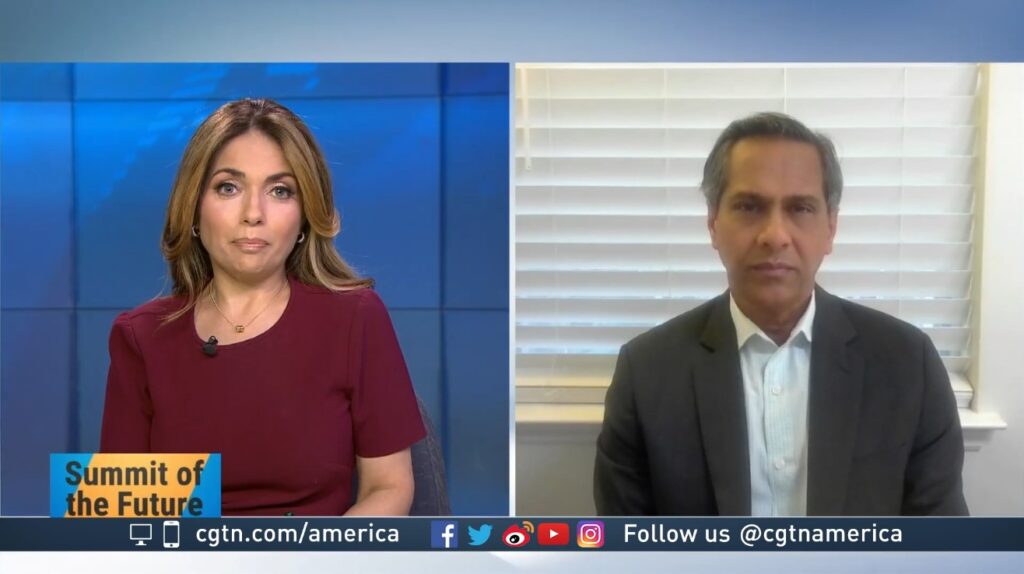

The Institute for China-America Studies is an independent nonprofit, nonpartisan research organization dedicated to strengthening the understanding of U.S.-China relations through expert analysis and practical policy solutions.
1919 M St. NW Suite 310,
Washington, DC 20036
icas@chinaus-icas.org
(202) 968-0595
© 2025 INSTITUTE FOR CHINA-AMERICA STUDIES. ALL RIGHTS RESERVED.